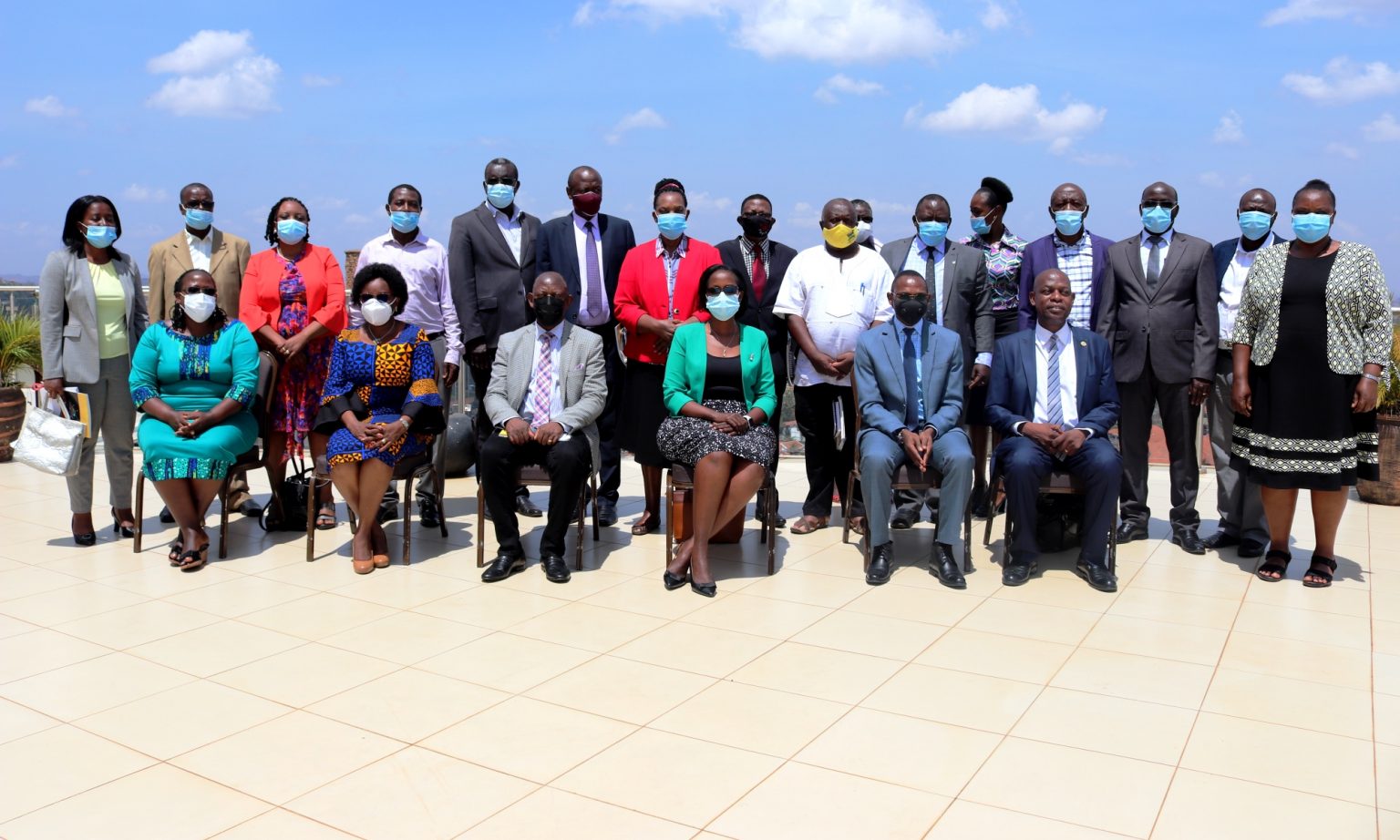The annual self-assessment of Makerere University conducted by the Quality Assurance Directorate (QAD) has shown an improvement in research productivity despite the disruptions to academic activity caused by the COVID-19 pandemic. According to a presentation by QAD Director, Dr. Vincent Ssembatya before the Chairperson Council, Mrs. Lorna Magara, Vice Chancellor Prof. Barnabas Nawangwe and Members of Management on 12th March 2021, research productivity improved from 992 publications in 2019 to 1,301 in 2020.
The breakfast meeting held at the Kampala Skyz Hotel in Naguru showed that by attaining this milestone, the University had hit its target of one publication per academic staff per year. It was nevertheless pointed out by Dr. Ssembatya that this was not an opportunity to for staff to rest on their laurels but to set their sights on new targets.
The Vice Chancellor reechoed the same sentiment by recognizing that the annual self-assessment exercise helps the institution to review both successes but failures, so as to come up with strategies on how best to improve. He thanked the Government of Uganda for the support through the Makerere University Research and Innovations Fund (Mak-RIF) that had contributed to the improvement in research productivity.
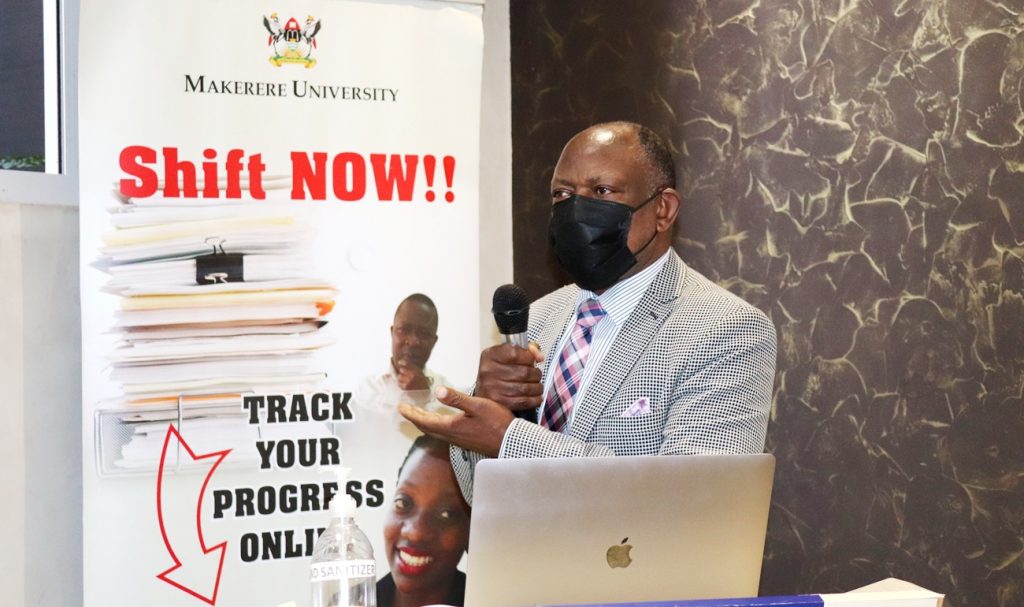
“Thanks to the capacity built by the Government, we now have some of the best laboratories in Africa. The College of Veterinary Medicine, Animal Resources and Biosecurity (CoVAB) is now working on a tick vaccine” remarked Prof. Nawangwe. CoVAB is home to state-of-the-art Level 2 and 3 biosecurity labs.
He added that Makerere has to set its sights on having more staff at levels of Professor, Associate Professor and Senior Lecturer if it is to become a truly research-led university, and thanked Chairperson and all present for sparing time to attend the important meeting.
The Deputy Vice Chancellor (Academic Affairs)-DVCAA, Dr. Umar Kakumba in his remarks likened the University to a human body with different systems all working together to ensure optimum performance of the individual.
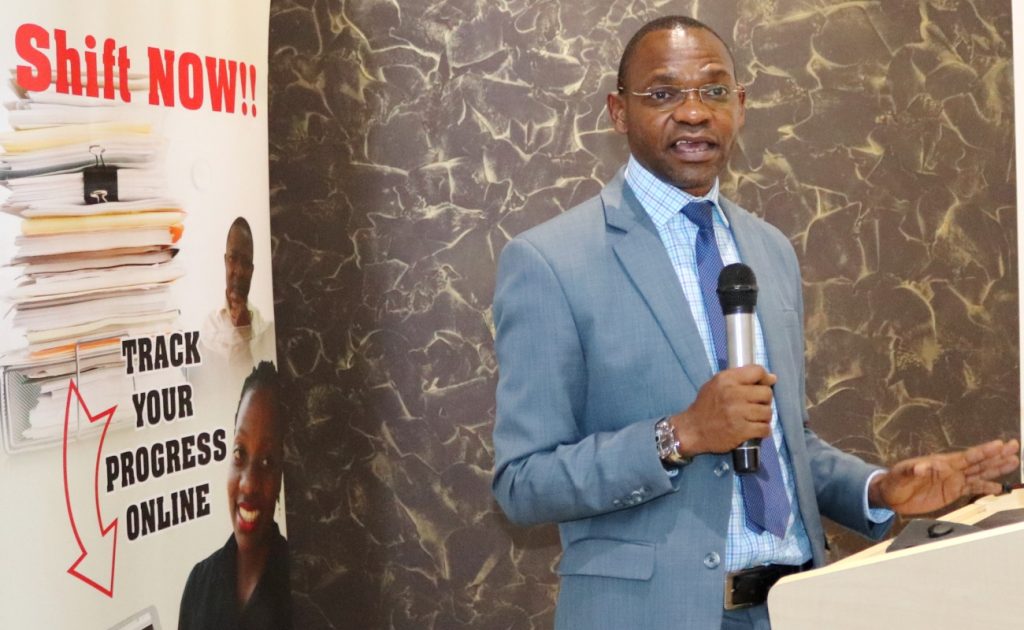
“Organisations are made up of systems and self-assessment helps us to take a closer look at them and assess how well they are linked and functioning as a whole” said Dr. Kakumba.
He particularly pointed out the need to continuously refine and improve the curriculum so as to incorporate the changing needs of the private sector while supporting the basic components of traditional disciplines. Furthermore, the DVCAA pointed out the need improve institutional research translation mechanisms so as to boost uptake of findings by various stakeholders.
“Self-assessment provides the data that helps us as Management to inform our policies and base our decisions on evidence” noted the Acting (Ag.) Deputy Vice Chancellor (Finance and Administration), Dr. Josephine Nabukenya as she made her remarks.
She thanked the Director QAD for highlighting Artificial Intelligence (AI) and Nanotechnology as emerging areas in curricula and encouraged all present to use AI to analyze data and so as to transform the administrative and teaching functions.
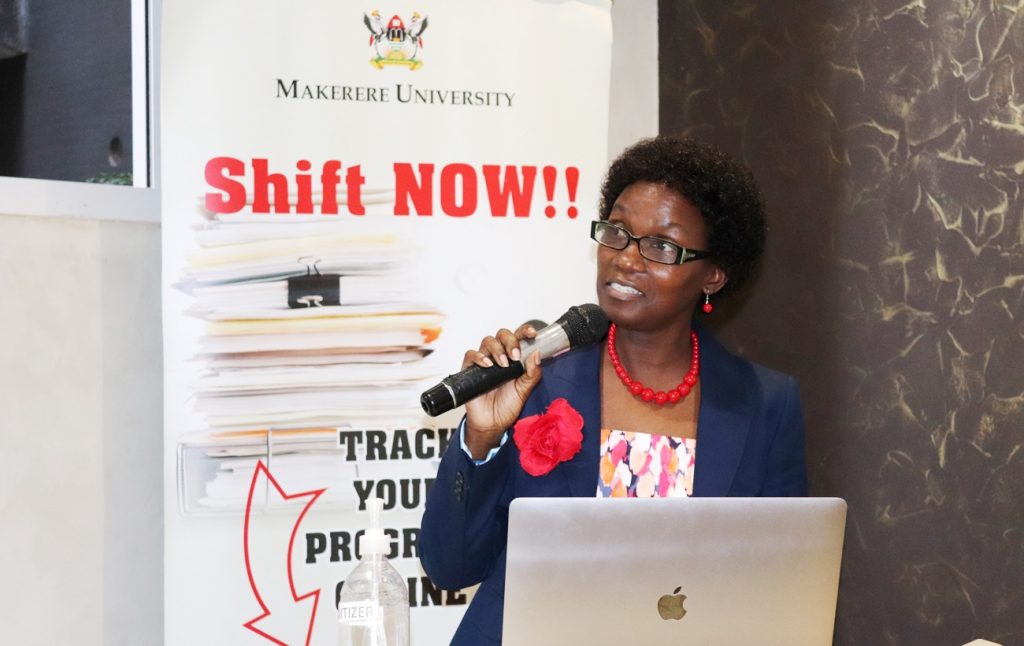
“I urge us all to play a critical role, take the lead and be supportive as we sell this new idea to the rest of the University. We are digitizing our Human Resource services and the result will help us to use AI to analyze our data and improve productivity” said Dr. Nabukenya.
Highlights from the Self-Assessment:
- Female Student Enrolment in Science, Technology, Engineering and Mathematics (STEM) hit the 43% mark
- Graduate Student Enrolment is at 13% of entire student population but needs to increase
- International Students represent 43 nationalities with South Sudan having the largest proportion. International Students constitute on 3% of enrolment, with the College of of Health Sciences (CHS) having the largest proportion (9%).
- Females on average constitute 39% of Human Resources (Academic-29%, Administrative-51% and Support-50%)
- The Staff to Student Ratio stands at 1:22 against a target of 1:15
- The University has produced over 850 PhDs (over 210 Female) since the year 2000, with more than 50% (over 400) of these sponsored by the Swedish International Development Cooperation Agency (Sida)
- The Staff to Grants ratio stands at 0.9 against the National Council for Higher Education (NCHE) standard of 1.
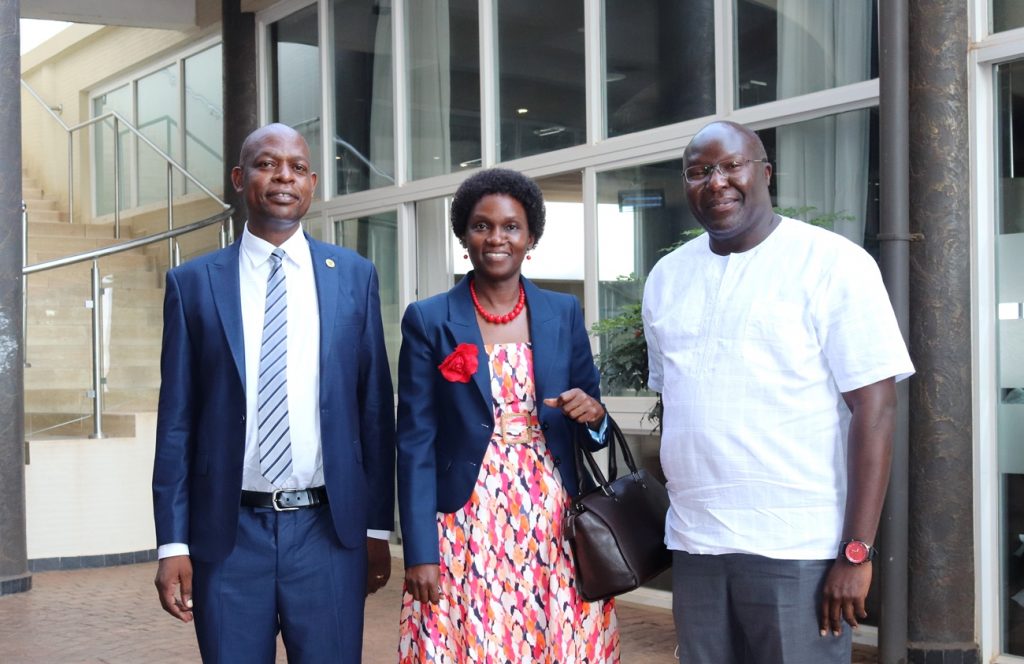
On the same occasion, the Director Gender Mainstreaming Directorate (GMD) Dr. Euzobia Mugisha Baine made a presentation on “The Gender Terrain at Makerere University“. Therein, she shared a more comprehensive analysis of the growth of female staff in academic positions from 2004 to 2018.
Females at the rank of Professor grew from 4% to 16%, while Associate Professors grew from 6% to 17% and Senior Lecturers from 19% to 36%. The growth was however marginal for females at the ranks of Lecturer and Assistant Lecturer, who grew from 25% to 28% and 29% to 31% respectively in the same period.
The analysis continued to gender representation in Governance where on average females constitute 23% of the Membership. Females make up 26% of the University Council and 17% of the University Senate while they make up 25% of Central Management and 36% of Deputy Managers.
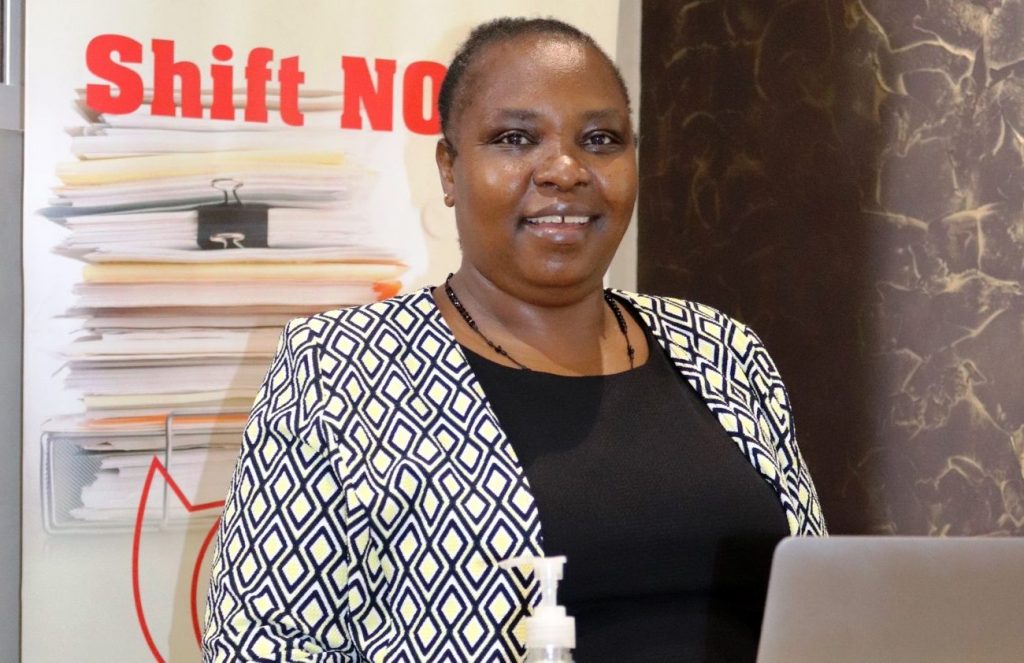
When it comes to leadership at College level, females constitute 20% of the total number of Principals and 40% of Deputy Principals. At the School level, females make up 21% of the Deans and at Departmental level, 25% of the Heads/Chairs.
To help improve the gender terrain, the Director GMD recommended that that the University Council should call for a review of University Policies so as to ensure alignment with the Gender Equality Policy, inclusion of targets for female representation at all levels of the University Service as well as integration of gender equitable staff development and mentorship.
Delivering the closing remarks, Mrs. Magara expressed her delight on behalf of the University Council upon having been a part of the day’s discussions. She thanked the Director and Staff of QAD as well as Director GMD for well delivered presentations. “As an institution, business or individual, you cannot progress without analyzing data.”
Sharing a quote from the late Dr. Myles Munroe, “When purpose is not known, abuse is inevitable”, the Chairperson of Council said the annual self-assessment is indicative of Makerere‘s desire to continuously realign its strategic plan with its purpose.
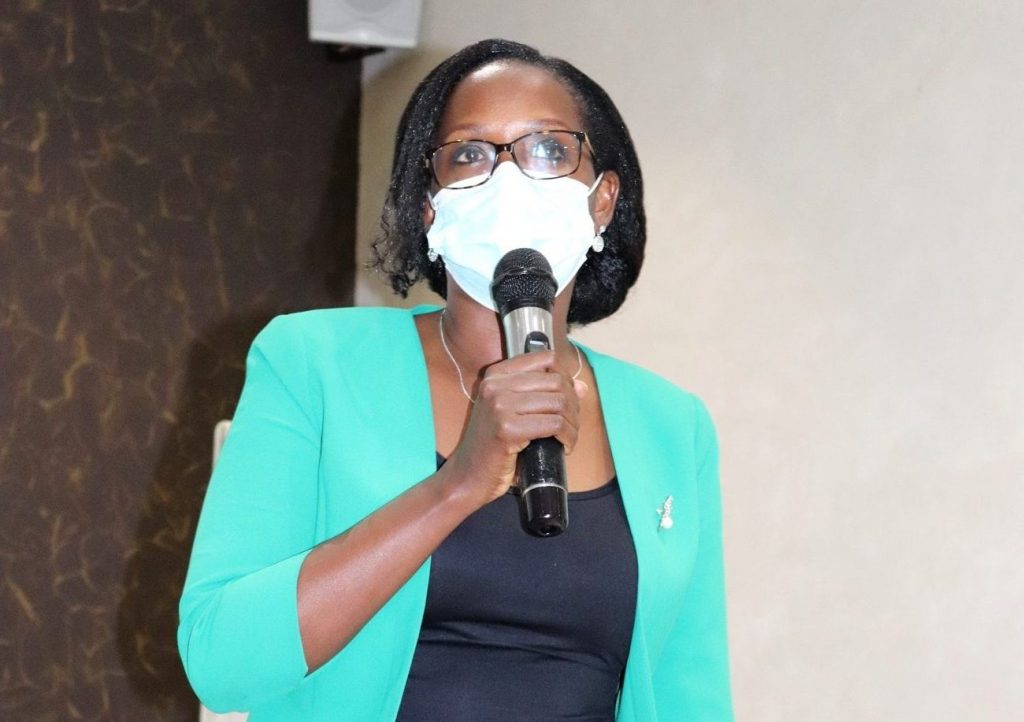
“What is Makerere‘s purpose? Can your articulate the University’s purpose in Uganda, Africa and the World? What is our niche as Makerere?” challenged Mrs. Magara to her audience.
She noted that Universities have undergone transformation from the first, second and third generations in terms of the respective role played i.e. Defending truth, Understanding nature and Adding value, right up to the present fourth generation, whose role is Entrepreneurial development.
“My desire is that we should all become imaginal leaders with the ability to scan, plan and educate for the future” stated the Chairperson Council before tackling what she considers one of the University’s greatest strengths. “Makerere is the concentration of some of the most brilliant minds; we have the human resource that can drive the development of this country and a lot of good will that is drawn from our 100year history.”
Mrs. Magara observed that the COVID-19 pandemic has given Makerere University a platform to demonstrate leadership and innovation that can be felt right from the highest decision making level to the person on the street. She therefore urged staff to continually lift their eyes up from the environment they operate in to the great needs of society that they can help meet.
She thanked the University Management for inviting her to attend the self-assessment breakfast and gain better appreciation of inner dynamics that keep Makerere running. “Council is more than 100% committed to driving this University to achieve its purpose.”
